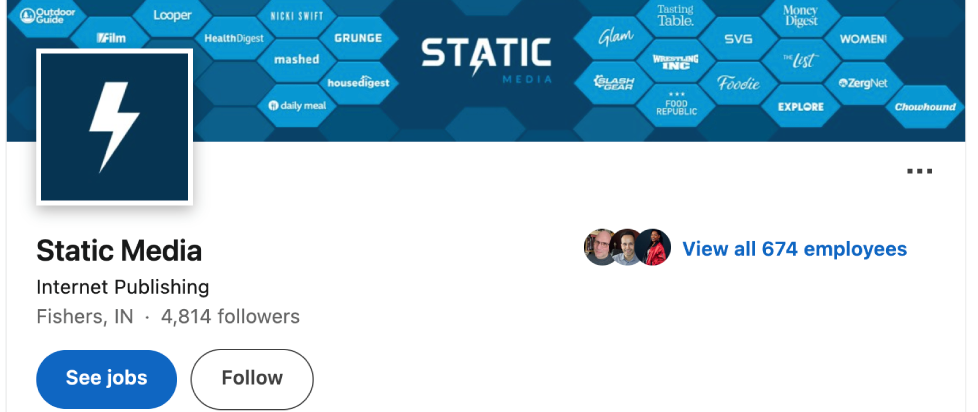
Why Me? A Narrative Feature About Games Media Layoffs
A mutual of mine once made a comment about how difficult it was to work in an industry where “everyone” has been laid off “at least twice.” A year after that, I can say I know the feeling.
The first layoff didn’t hit me as hard. I didn’t even know I’d been laid off until my phone notified me that I’d been removed from the Trello boards. I thought management might just be moving things around, but then I realized I couldn’t get into Slack, either. I went into my email and realized there was a big, bold headline waiting for me: Static Media Organizational Changes.
“We’re making organizational changes to our team, and we’ve had to make some tough decisions. Unfortunately, we’re ending your contract with us, effective immediately.”
The messenger emphasized that it wasn’t anything in particular I did, just that “cuts had to be made in order to restructure some of our brands and the content we produce.” In short, it’s not you, it’s us.
———
The Society for Human Resource Management defines a layoff as a “ separation from employment due to a lack of work available.” It’s also supposed to be a type of termination in which the employee holds “no blame.” If they did something that warranted dismissal, then they would simply be “fired.” Yet, it’s easy to feel like you did something wrong when you’re told to leave and your coworkers are still sitting steady (debatable).
There’s been layoff after layoff in the media industry and tech in general. It’s usually some excuse about money or the economy. At Google, CEO Sundar Pichai said, “we hired for a different economic reality than the one we face today.” Epic Games, a company that CEO Tim Sweeney once said wouldn’t hold layoffs, recently told laid off employees that folks tried net-zero hiring and cutting down on marketing, but that it “still ended up far short of financial sustainability.”
TechCrunch has a running list of every tech layoff, and Forbes has one for all media layoffs in 2023. Heck, Forbes is missing Static (and BDG), so this isn’t even all of them.
———
I’d only been working 10 hours a week for Static Media. It was a different story for my other co-workers that were laid off, who were working closer to full-time hours. We had no severance pay, or a union to even negotiate such things. In the end, I made a Twitter thread telling everyone which of my coworkers and I were laid off and called it a day.
Editors reached out with some opportunities, and we moved on. One of my old editors, who was apparently also laid off from Static in a sudden way, reached out to give his condolences and say that it was wild that the company would lay me off with the bylines and experiences I had. They were very kind words, but all I could think of was, so what?
If I was so good, then why would I get laid off when Static apparently had enough money to keep paying for a select few? Was it because I started late too many days, or because I didn’t write as many features as I used to? I wasn’t really as tuned into that client as I used to be, partially because I had bigger clients now. Maybe they could tell.

I knew in the pit of my stomach that this wasn’t an isolated incident. The alarm bell for games media layoffs started ringing last year, and it hasn’t stopped. I remember even writing an article at Inverse about The Washington Post sunsetting The Launcher, its games section that produced everything from breaking reports to thorough analyses.
We’d thought it was untouchable, an outstanding example of what games journalism should be at a legacy publication that seemed like it had the money to pay for it.
We were wrong.
———
I didn’t think I would be at Inverse forever. I wasn’t that naive. After all, BDG shuttered our sister site, Input, and already laid off one of our dear friends earlier that year. Things weren’t all bad, though. BDG Union negotiated a new contract where even part-timers were going to get a raise and new benefits. All of us were finally going to be paid the same amount? Awesome.
Then, they came for me, my associate editor, and at least twenty other people from other sections that’d been working there for various lengths of time.
It started with an unlabeled Google Meet invite in my inbox for 9–9:30AM. I’d started working in the middle of that time slot and missed it, so I emailed the sender back to try to reschedule.
The exact reply is no longer in my inbox. It was along the lines of, “lol our bad, we just wanted to tell you you’ve been laid off.”
We were told BDG was “making changes across the business due to continuing economic challenges.” Somehow, that meant we were longer needed.
I dove into the BDG Union chat to see who else was laid off. Everyone who was laid off was scheduled for a video meeting. If you had no video meeting, I guess you were safe. This is apparently considered the most “humane” way to lay someone off because it gives the soon-to-be former employee room to ask questions that they might not feel comfortable asking in front of a crowd. Some sites like BetterUp even advise HR managers and companies against doing a group meeting. On the other hand, a Zoom meeting can be considered cruel, especially if others see the looming invite as a sign of your fate.
I thought maybe they were laying off all of us, but no. Just me and my associate editor from the gaming section. When it became obvious that it was only the both of us, I started to wonder why. This time, the why crawled under my skin. I should’ve pitched fewer guides and more interviews. I should’ve written more inspiring prose. I shouldn’t have been as focused on making money from other outlets. Or maybe I just wasn’t as good as the others.
Maybe their drafts were perfect. Maybe they never needed extensions, or maybe they were generally more responsible and less problematic.
Maybe, actually, it was me.
———

About a month after my editor and I were laid off from Inverse, GamesIndustry.biz published an article about games media layoffs that included testimony from at least three different major publications that laid off a significant portion of their staff.
According to GamesIndustry.biz, games media also often deals with unrealistic expectations from upper management and an incentive to lean heavily into SEO-centric articles. Games in particular was a fast-growing beat that companies treated like an uncomplicated cash grab without understanding how long it would actually take to build trust as a publication and how much traffic was possible, even with hardworking, talented staff.
Even now, I see the struggle for editors to manage pitches based on genuinely interesting topics that align with the site’s interests and how well they align with SEO goals. Gotta get those clicks, baby.
Anyway, it wasn’t enough. Not for Future, Tencent, GAMURS, WaPo, Static Media, BDG –
The list goes on.
———
I didn’t feel anything right away. I wasn’t surprised to be laid off, but I didn’t think it’d happen so soon. I thought about how I could add up articles from my best paying clients and that maybe it wouldn’t be so bad. That it’d be annoying but doable.
I remember thinking, even when watching people I’d respected for years but never talked to get laid off, that it wasn’t really their fault. I mean, they seem so cool and smart online, surely the layoffs can’t be for any other reason than poor management? Many of the layoffs also overlapped with shuttering an entire publication, like in the case with Launcher or Input.
So, why me? You never really know. Even if HR says they picked people because they worked the least hours or they didn’t get enough hits on their articles, many will still back their laid off colleague, saying that’s barely an excuse to lay someone off.
They will say you deserved to stay.
———
Jess Reyes likes writing about games, especially the kind with superpowered teenagers. Her work can be found in Inverse, Digital Trends, IGN, and GameSpot – just to name a few. When she’s not writing or gaming, she’s probably window shopping or gassing up her mutuals on Twitter at @jpreyes__.





